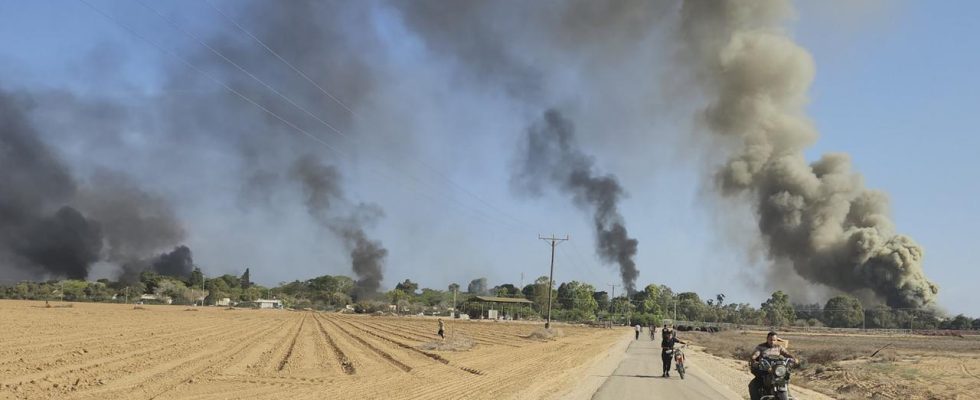The head of Israeli military intelligence takes his hat off and takes responsibility for the Hamas terrorist attack on October 7th. Other resignations could follow. What does this mean for Prime Minister Netanyahu?
Maybe it was this one message that made Aharon Haliva do something he had been saying for a long time. One day after the publication of a survey in which a majority of Israelis surveyed were in favor of those responsible in politics and the military now drawing consequences for mistakes made around October 7th last year, Israel’s top military intelligence officer did exactly that: Major General Haliva handed over his resignation.
The Army’s Intelligence Directorate did not do justice to its tasks under his leadership, Haliva wrote in his resignation letter. He has carried this black day with him ever since, “day after day, night after night,” the major general continued in the letter.
Israel’s Chief of General Staff Herzi Halevi and Defense Minister Yoav Gallant accepted the request to resign. Army leadership thanked Haliva for 38 years of service in the armed forces.
The timing is surprising
What is surprising about his decision is the timing. The top officer announced shortly after October 7 that he would resign as a result of the Hamas terrorist attack. Like other military and security officials, Haliva also stated at the time that he would wait to implement the step until the military situation permitted it. Now he obviously saw that time had come.
A possible reason for the resignation now could be internal investigations by the army. A comprehensive investigation should be carried out into how it was that Israel’s military was caught so cold by the terrorists from the Gaza Strip in the early morning of that fateful Saturday. The Palestinian extremists penetrated the extensive border fortifications, overran army posts on the other side, murdered more than 1,200 people and kidnapped around 250 hostages.
Haliva was on vacation at the time and, according to media reports, shortly before the attack she received the first indications that something might be imminent. In the weeks and months before, soldiers responsible for monitoring the border had made and reported suspicious observations. However, the army leadership did not take the warnings of the so-called border monitors seriously.
Conflict of interest prevented
The internal military investigations should now cover the period immediately around October 7th and go back ten years to find out whether possible strategic errors made Hamas’s terrorist attack possible.
The Army Intelligence Directorate, the unit under Haliva’s command, is responsible for the investigation. He should have assessed the results of the investigation into his own possible misconduct – that could also be a reason for his resignation.
Who else draws conclusions?
Will others now follow? A number of decision-makers in the army and security services, including Chief of General Staff Halevi and Ronen Bar On, head of the domestic intelligence service Shin Bet, also announced personal consequences after October 7th – if the military situation permitted it.
Israel’s army is still fighting in the Gaza Strip, fighting with the Lebanese Hezbollah militia, carrying out anti-terror operations in the occupied Palestinian West Bank and has just had a direct exchange of blows with Iran. It is therefore unlikely that Haliva’s decision will trigger a wave of resignations.
Netanyahu’s special interests
A political review of possible errors surrounding October 7th is pending and is currently not in sight. Haliva apparently thinks she is necessary. In his resignation request, the major general called for a commission of inquiry to examine “all factors and circumstances.”
But Prime Minister Benjamin Netanyahu rejects the establishment of such a commission. He repeatedly emphasizes that while Israel is still at war in the Gaza Strip, this is not the time to deal with possible mistakes.
Netanyahu himself is criticized for his dealings with Hamas before October 7th. The accusation: Israel’s long-term prime minister had no interest in significantly weakening the terrorist group because he wanted to profit politically from the division of the Palestinians into Hamas and Fatah. Netanyahu has not yet admitted any mistakes of his own.
With the departure of Major General Haliva and possible other resignations, public attention could now focus even more on the head of government.
Tim Aßmann, ARD Tel Aviv, tagesschau, April 22, 2024 7:57 p.m

